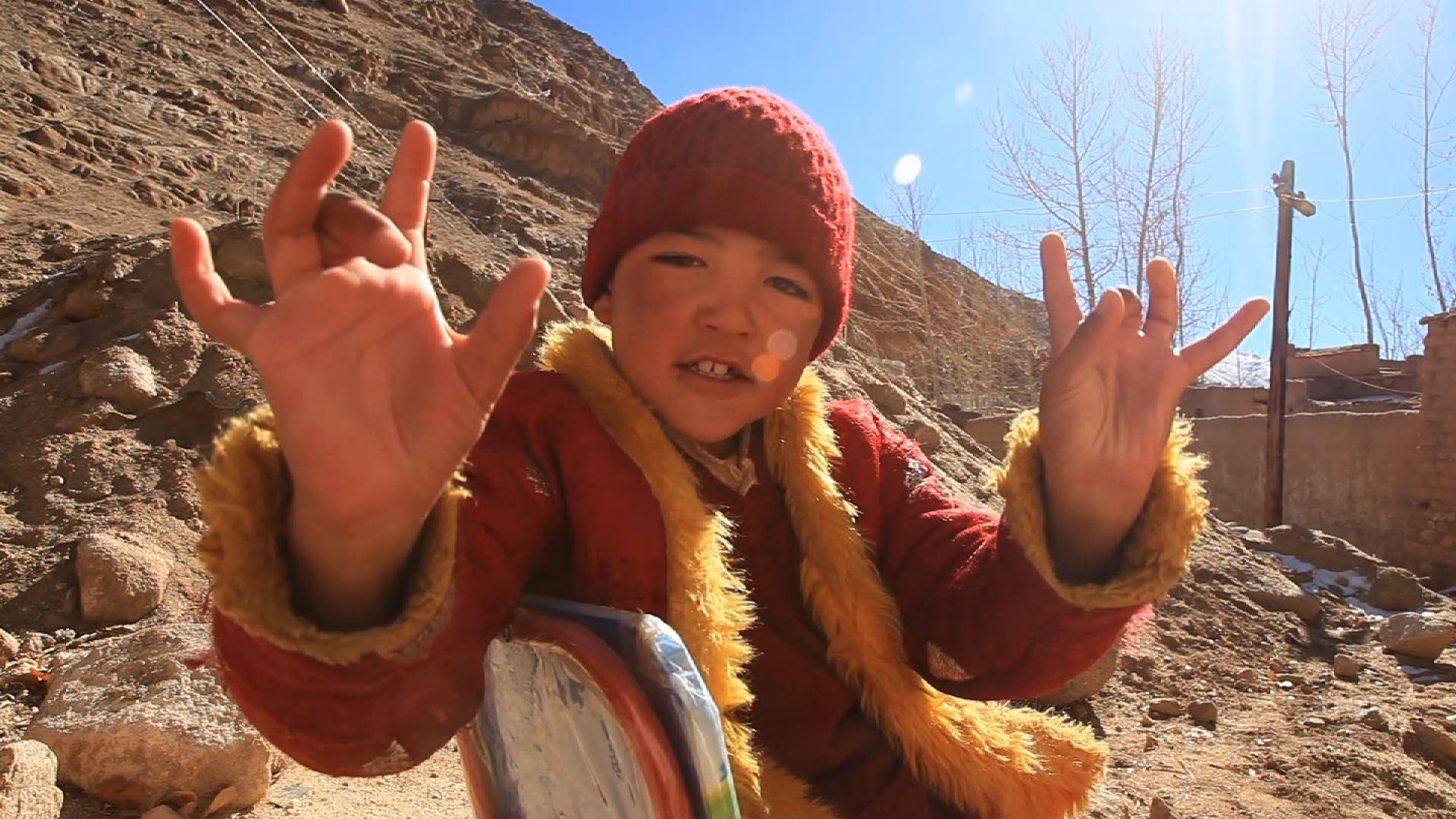Reincarnating as an enlightened being isn’t easy. Especially when you’re 6 years old.
Padma Angdu was anointed as a Tibetan Buddhist rinpoche, or enlightened being, in 2010. He was 6 years old at the time.
After death comes for a rinpoche — a Tibetan Buddhist spiritual leader, imbued with supernatural powers — he or she may choose to reincarnate as an infant.
Belief dictates that once these children grow old enough to speak, they provide clues to prove their past identity and begin to summon disciples. They are then brought up as enlightened beings, relentlessly schooled in scripture so they can resume their earthly mission: guiding their flock to enlightenment.
Such was the extraordinary fate of a child named Padma Angdu, who was anointed as a rinpoche in 2010.
He was only 6 years old at the time.
Rinpoche translates as “precious one” but is best described as a reborn spiritual master of divine provenance. Even as a child, with ruddy cheeks and a squeaky voice, Padma Angdu was exalted by worshippers in his Himalayan village.
The veneration began at a ceremony honoring his status. Horns blared and finger cymbals tinkled. Adults crouched before the berobed boy and he blessed them, one by one, by patting his stubby fingers atop their heads.
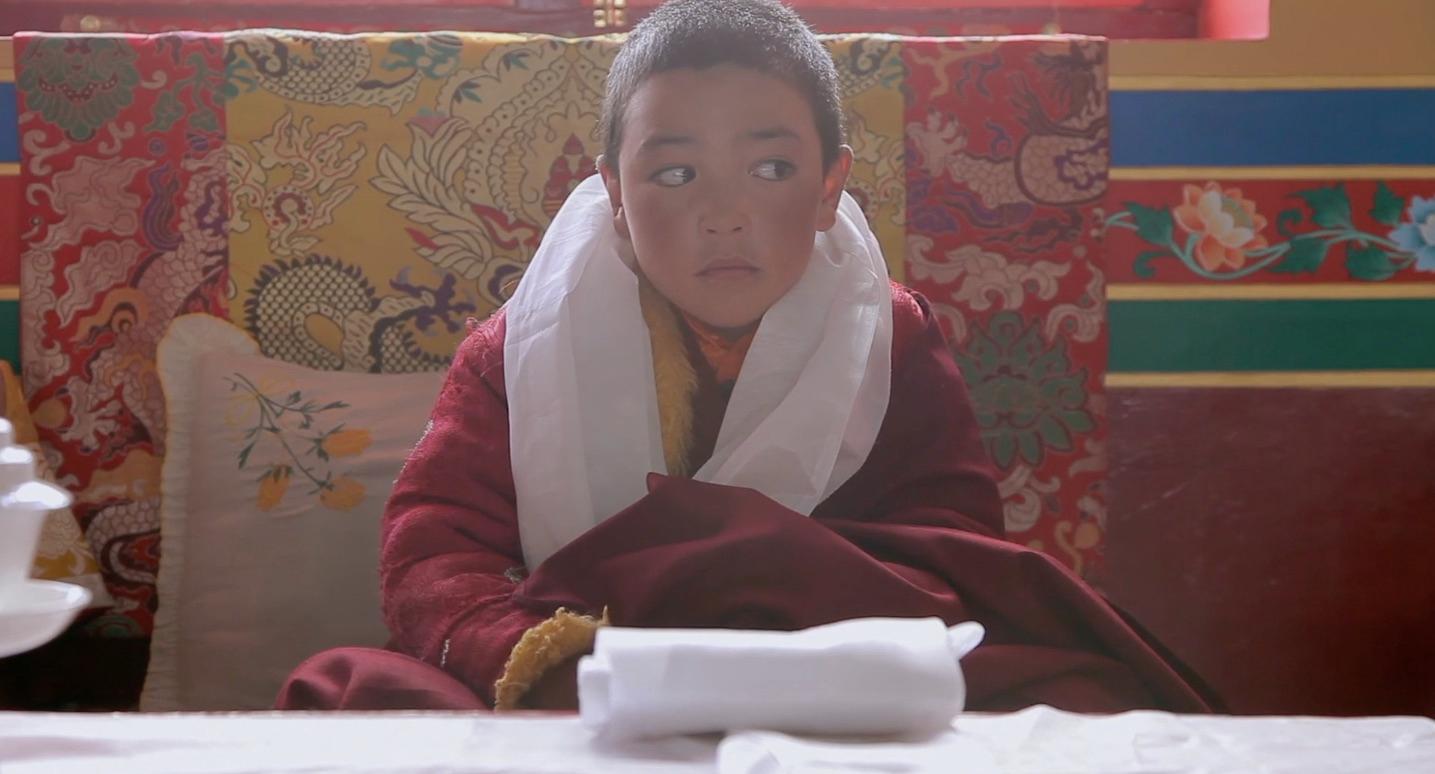
Born in a blustery, pebble-strewn hamlet near Ladakh — a town in India’s Kashmir region — Padma Angdu has brought tremendous honor to his village. Yet as the years have mounted, his supposed past life has increasingly complicated his childhood.
Is an exalted master allowed to join a raucous snowball fight with other kids? When he goes to the market to buy candy, must every adult stoop at the waist and await his blessing? And if he is truly endowed with profound cosmic wisdom, why is growing up still such a drag?
Similar questions have surely troubled other child masters in the 1,400-year history of Tibetan Buddhism. Such crises of identity would ordinarily remain private — a matter whispered between a rinpoche and his caretakers.
But in Padma Angdu’s case, there were cameras rolling during this transition into stormy adolescence. Two Korean filmmakers, Jin Jeon and Moon Chang-yong, were allowed to film the boy for eight years.
The result is “Becoming Who I Was,” a documentary capturing both the poignant and comical moments in the child’s life. The film won the top prize at the most recent Seattle International Film Festival — the largest film festival in the US — and plans are underway for a North American theatrical release this spring.
During the course of the film, Padma Angdu is treated by his community as an elevated being — sometimes literally. At school, he sits on a cushion to position his body higher than his classmates. During lunch break, he dines on food that has been spiritually cleansed with incense.
And yet, at other times, Padma Angdu is a boy riven with typical insecurities.
He admits that “when playing with friends, I’m embarrassed by my short height.” His best friend is a mischievous little girl who delights in playing with firecrackers. The explosions terrify Padma Angdu. He crouches behind boulders and plugs his ears with the fabric of his wine-colored robe. When he finally flees in fear, his friend shouts, “Master, come back!”
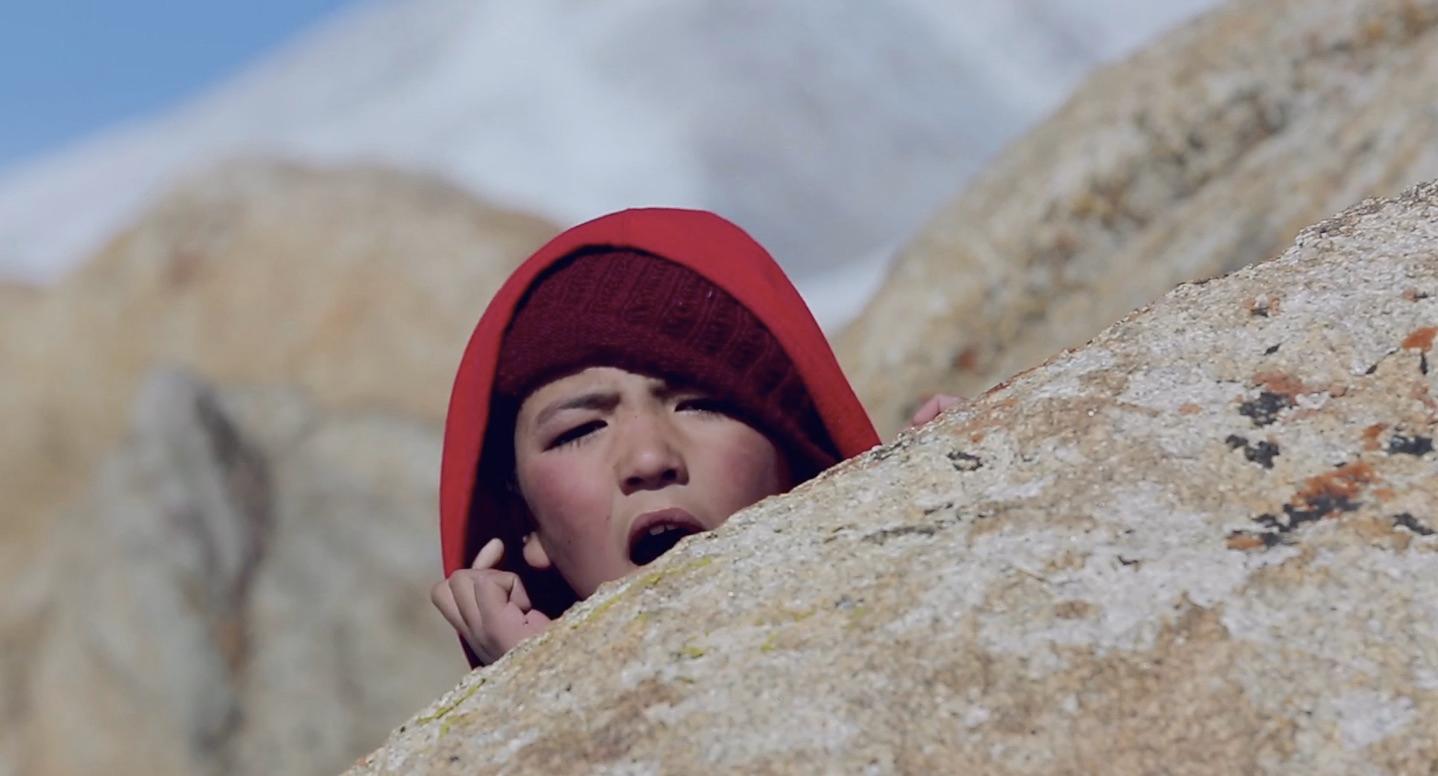
It’s no less complicated to raise a rinpoche than it is to be one. Padma Angu’s mother accepted her son’s fate and entrusted him to his elderly uncle, Urgyan Rickzen, who is utterly devoted to realizing the boy’s destiny as a spiritual master.
Much of the documentary focuses on the relationship between Padma Angdu and his guardian as they prepare for the rinpoche’s intimidating destiny: leading a monastery more than 1,000 miles away in Tibet, the spiritual homeland of all Tibetan Buddhists.
More frightening yet: Tibet is located in China, where Tibetan monks are severely persecuted.
In this Q&A, documentarian Jin Jeon speaks about the years she devoted to documenting Padma Angdu’s complicated childhood.
Patrick Winn: Why do people in his community believe he’s a reincarnated spiritual master?
Jin Jeon: There are several ways to confirm that he is the reincarnation of a great master. Since he was very young, he would talk a lot about his previous life. Also, he was born with the umbilical cord draped over his chest like a monk’s robes. That, for them, was a sure sign.
Every rinpoche has a strange birth. They believe, in Tibetan Buddhism, that the mother of a rinpoche always nearly dies before she gives birth ― and his mother was warned that she might die if she gave birth to this child.
The young boy also speaks about certain recollections from his past life. The big lamas in his community and in the surrounding area were able to check and confirm that these memories match with the life of a previous great lama.
The monks also have books that list auspicious dates. That helps confirm he was born at certain times that allow for reincarnation according to their belief system.
Let’s be clear. He is not seen as the reincarnation of the original Buddha, Siddhartha Gautama. Can you help demystify this?
No, Padma Angdu is not the original Buddha. There are so many lineages in Tibetan Buddhism. He is supposedly the rebirth of a certain lama who passed away in Tibet in a place called Kham.
Tibetan Buddhists believe that every high lama who dies can be reincarnated. Their lineage just goes on and on. If the followers are lucky, they can locate the reincarnation as quickly as possible and return that person to the exact same monastery. Right back on the exact same throne as the lama who died.
A rinpoche believes he is reborn because he has a duty unfulfilled from his previous lives. That duty is to lead his followers to enlightenment.
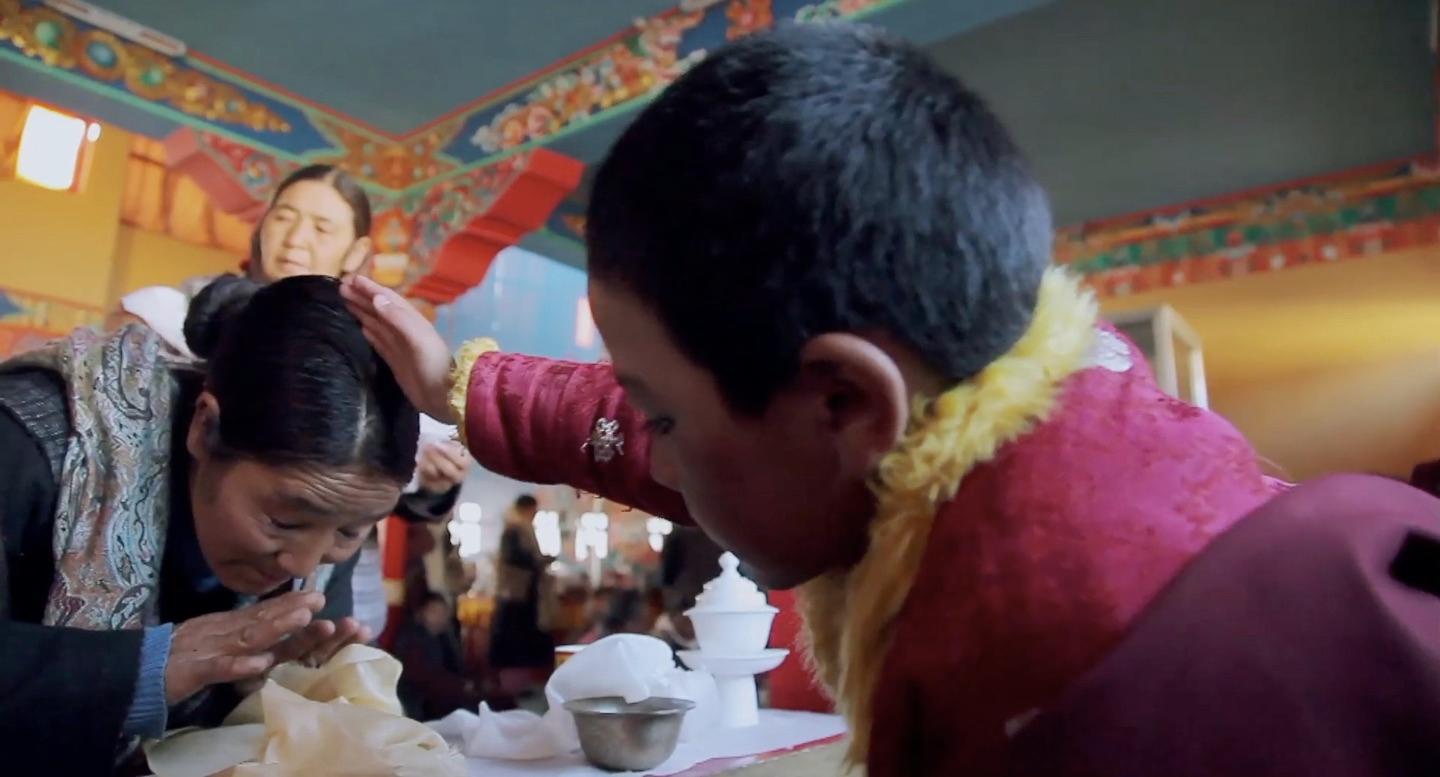
Once this boy is named as a rinpoche, how do adults start behaving around him?
They give him utmost respect. They can never speak badly of a rinpoche. They believe he can bring healing, restoration and spiritual enlightenment.
He can even bring luck into their lives. They really serve the rinpoches and pray to them.
In your film, we see him in the market trying to buy candy. But all these grown adults with grey hair come up and bow before him. How does he respond to these situations?
He automatically has to give them blessings with his hand. He’ll lay his hand upon their heads — and in this culture, not just anybody places their hands on someone’s head. Only a rinpoche can bestow that kind of blessing from a higher state.
We want to show how Padma Angdu is childlike, playing with children and craving sweets and having a preteen identity crisis. And at the same time he’s a god-like reincarnation.
How is he treated by other kids?
He lives in a small village. Some kids knew him before he was recognized as a rinpoche. With children, there are fewer boundaries.
When they come into the monastery, however, they bow before him. But when they’re playing, they seem to forget — although they address him with the name rinpoche.”
How does he act around other kids?
Padma Angdu is such an expressive boy. When he’s angry or sad or happy, he really expresses himself. He also has insecurities about being short.
And he’s quite a scaredy-cat. He’s afraid of cows in the neighborhood. He runs from little puppies. He has a lot of fear for flying balls and he’s not very good at sports. In this sense, he’s like an average boy with average problems.
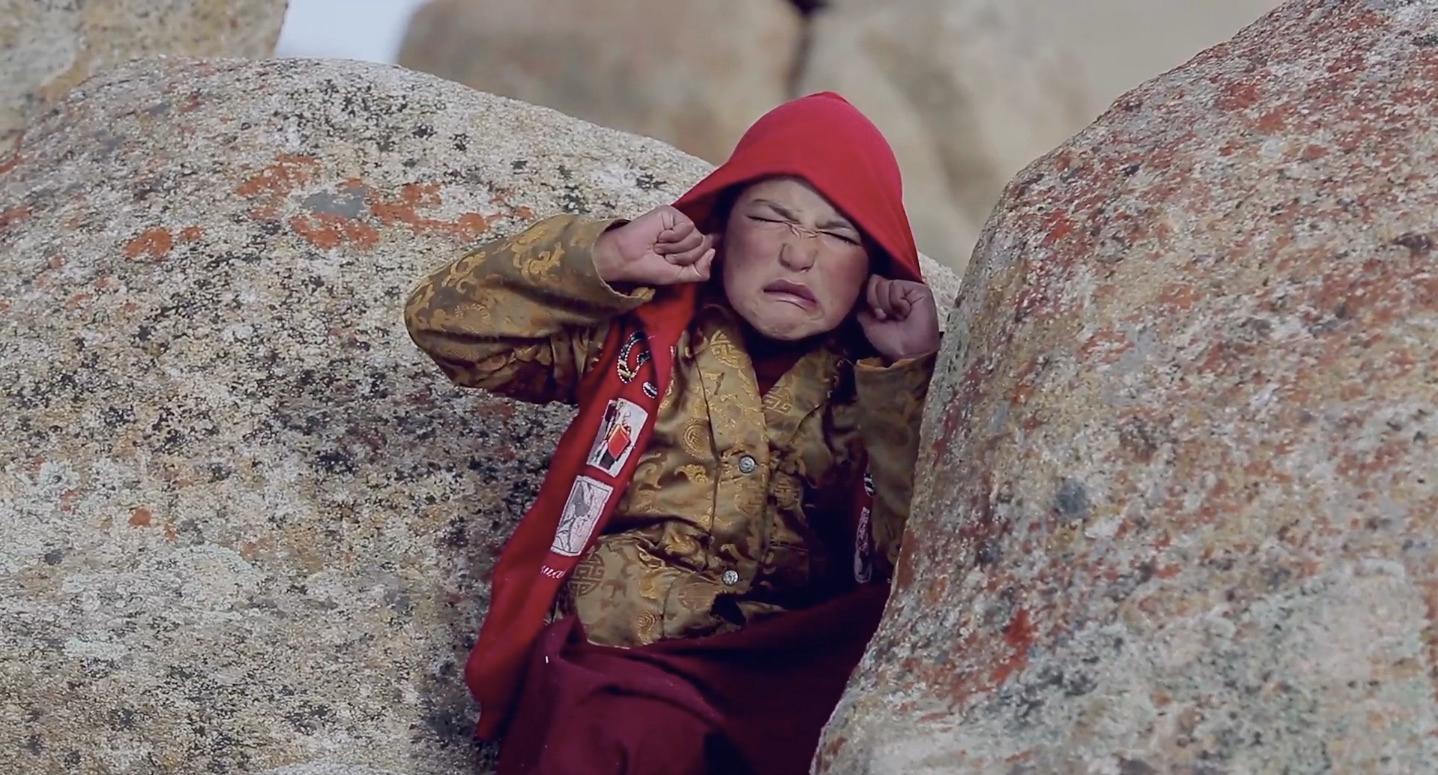
I know you’re not a Tibetan Buddhist, but did you feel any special aura around this child?
Right, I’m not a Buddhist, and I want to emphasize that the film is not about this religion per se. The story is more about unconditional love between Padma Angdu and his uncle. This is a concept that can be understood by anyone around the world.
That said, when shooting with him, there were moments where he kind of zoned out and went into another world. He has these past recollections and then he’ll return back to reality. There’s something genuinely different about this child. He definitely seems a little more wise, beyond his years.
Can you describe his village?
It’s a high-altitude, barren land. It’s very remote and high up in the mountains. The closest airport is in Leh, a city that’s maybe an hour and a half away by car.
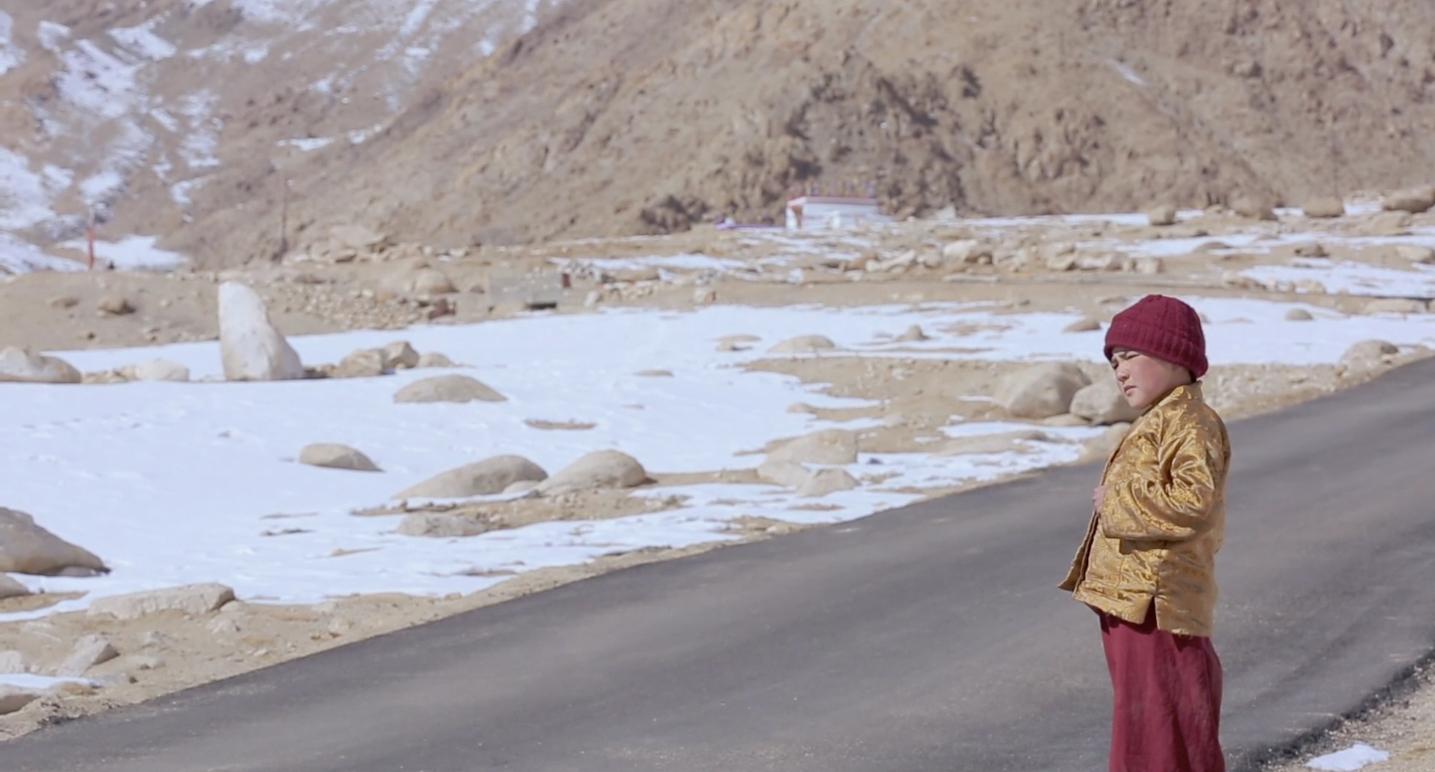
When filming, we struggled with altitude sickness, at about 2,500 meters [8,200 feet] above sea level. And as the rinpoche got older, he grew more demanding and would request for us to play soccer before our shoots.
We’d have a “Korean team” ― just the two of us ― against the “India team,” which was the rinpoche and his friends. Running around with the kids at that altitude would just kill us. But we had to do it to get better results for our shoot.
It’s often cold, minus 20 degrees [Celsius] and no home has central heating. Warmth comes from building a fire. There is usually no running water because the pipes freeze. You “shower” outside with a bucket of boiled water behind a sheet of corrugated iron. The toilets are just holes in the ground.
Day-to-day life was not easy. But we had it better than the rinpoche because we wore high-tech mountain gear. I don’t know how he survives in his thin monk’s robes.
What is the role of his mother? What’s it like to bear a child who turns out to become a spiritual master?
His mother is actually quite down to earth. Padma Angdu has two older sisters, one who is now 18 years old. The other is 16 years old. His mother knows that the difficulty of raising them alongside a rinpoche is too great.
So she accepts that Padma Angdu must live in the care of his uncle and spiritual guardian, Urgyan Rickzen.
The mother realizes that giving birth to a rinpoche is a great honor. And yet it’s difficult to give him up so he can fulfill his destiny. She’s also spoken about the difficulty of discipline. “You can’t discipline a rinpoche,” she tells us, because he is a “living Buddha” and not one of her other children.
When he’s starting to rebel ― throwing rocks everywhere and shouting ― she can’t do anything.
No one can. He’s a rinpoche.
Can his uncle discipline him?
Yes, as his guardian and teacher, the uncle can discipline him and lead him on the right path through Buddhist scriptures. It’s a spiritual discipline. If the boy is acting rude, the uncle will force him to recite Buddhist scripture. But he cannot lift a hand or scream. He simply can’t.
The uncle’s whole world revolves around Padma Angdu. He loves him so dearly and fears anything that may harm him. Especially the reality that a rinpoche is expected to journey to the monastery he once led in Tibet, on the Chinese side.
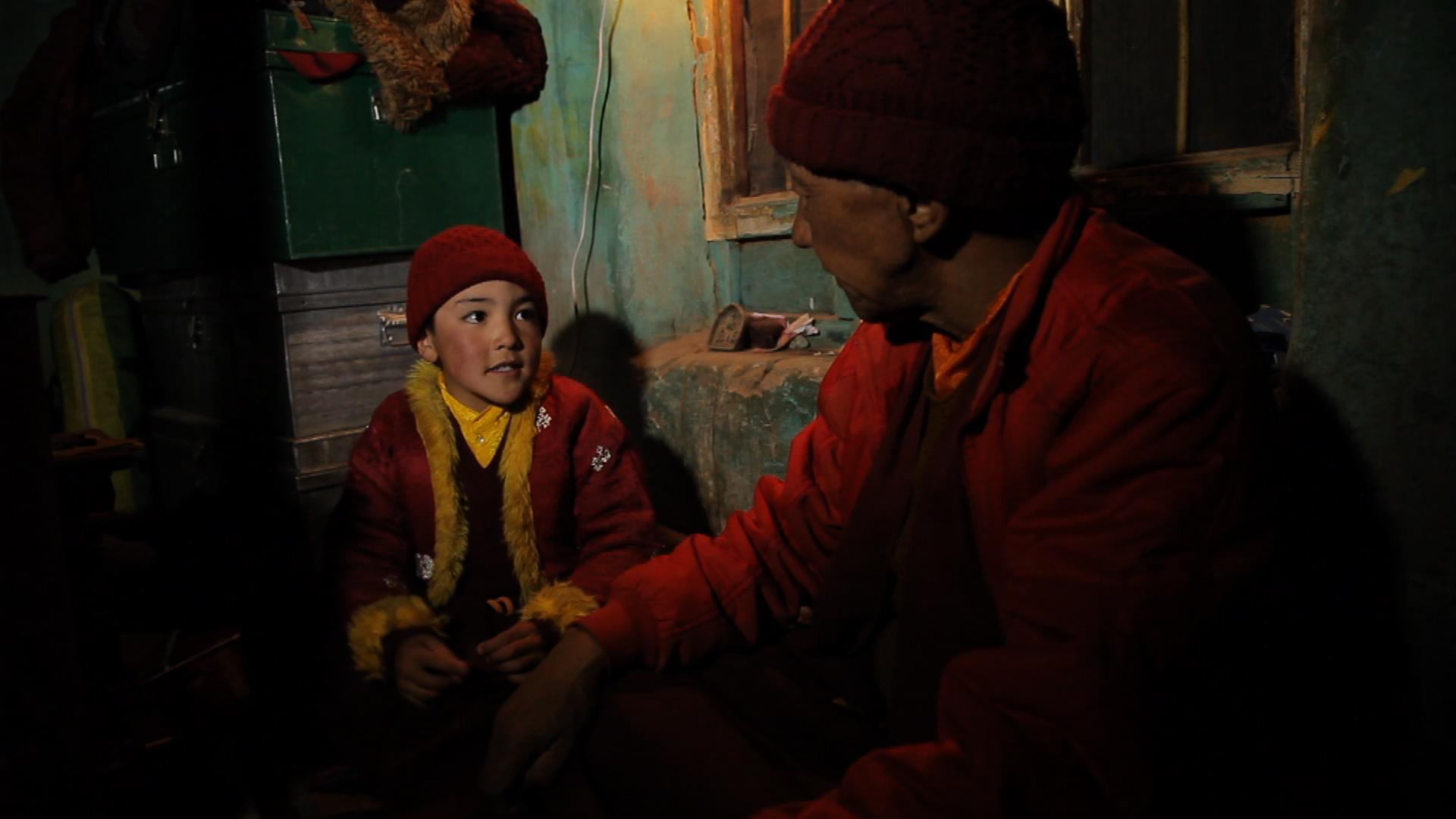
How does Tibet loom in their minds?
They fear Tibet. They’ve heard a lot of scary things from the Tibetans in exile.
But the rinpoche is still expected to wait for his disciples from Tibet to come and fetch him. So during the filming, they ultimately decide to stop waiting for the disciples, who never arrive even after several years.
Instead, they journey into Tibet so that Padma Angdu can begin his ten-plus years of studies in order to be restored onto his proper throne.
